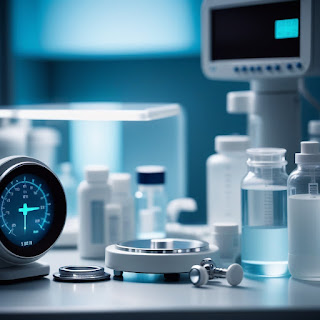Medical supplies play a vital role in ensuring the effective functioning of hospitals and providing quality patient care. From basic to specialized equipment, each item serves a specific purpose in maintaining health standards. In managing a hospital's inventory, it is crucial to consider various factors such as the types of supplies needed, their estimated costs, and important considerations before making purchases.
Types of Medical Supplies Necessary for Hospitals
• Personal Protective Equipment (PPE): Including gloves, masks, gowns, and face shields to protect healthcare workers and patients from infections.
• Diagnostic Equipment: Such as thermometers, stethoscopes, blood pressure monitors, pulse oximeters for assessing patients' health status.
• Treatment Supplies: Bandages, wound dressings, IV catheters & fluids essential for treating injuries or illnesses effectively.
• Surgical Instruments: Scalpels, forceps, scissors required during surgical procedures.
• Pharmaceuticals: Medications like antibiotics or pain relievers necessary for patient treatment.
• Monitoring Devices: ECG machines, ventilators used to monitor critical parameters in patients.
• Hospital Furniture: Beds, stretchers ensure comfort and support during treatment or recovery periods.
• Cleaning Supplies: Disinfectants to maintain hygiene levels within the hospital premises.
Estimated Costs of Medical Supplies
The cost of medical supplies can vary widely based on factors like brand reputation and product quality:
• PPE kits: $2 - $20 per kit
• Diagnostic equipment: $50 - $500 per device
• Treatment supplies: Varies based on quantity needed
• Surgical instruments: $100 - $1000 per set
• Pharmaceuticals: Prices depend on type and dosage
• Monitoring devices: $500 - $10 000 per unit
• Hospital furniture: Costly items ranging from hundreds to thousands of dollars
• Cleaning supplies: Affordable but essential expenses
Important Issues Before Purchasing Medical Supplies
1.Quality Assurance: Ensure products meet regulatory standards like FDA approval.
2.Vendor Reputation: Purchase from reliable suppliers with good track records in supplying medical facilities.
3.Compliance: Confirm products align with hospital protocols & guidelines regarding safety regulations.
4 .Cost-Efficiency: Balance between quality & cost-effectiveness while selecting items without compromising patient care.
5 .Inventory Management: Optimize supply chain processes by monitoring stock levels regularly to avoid shortages
6 .Training Requirements: Assess if staff needs training on using new equipment or tools efficiently
7 .Warranty & Maintenance Services: Consider warranties offered along with maintenance plans for expensive machinery
By addressing these key issues before purchasing medical supplies ensures hospitals can provide optimal care while managing resources effectively.
This detailed overview emphasizes the significance of choosing the right medical supplies tailored to a hospital's needs while considering budget constraints and quality standards indispensable elements in delivering superior healthcare services consistently.




Post a Comment
0Comments